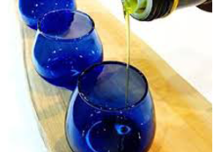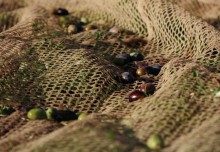
What are the most common mistakes when choosing extra virgin olive oil for your family?
When we are in front of shelves full of oil in the supermarket, it is not easy to make the right choice, unless you happen to be a qualified oil taster or expert. In fact, even that doesn’t guarantee the best purchase, since you can’t taste the oil before you buy it, nor know its full history.
Let’s look at what most the most common mistakes are and how to avoid them.
- 1 – Buying the cheapest.
It might seem obvious, but many people buy the lowest price bottle with the excuse that they are only using it for cooking and that they’ll buy good oil to flavour their food. As if anything was fine to cook with; as if we didn’t eat what we cook. Well, for 4€ a bottle you are not likely to find extra virgin olive oil inside! And what if we run out of the good oil? Will we use the 4€ oil to dress our salad too? Yuck!
- 2 – Buying large quantities of a type of oil before trying it.
What does this mean? Quite simply: test it! The best thing to do, once you have found a producer that you trust, is to buy one bottle and taste it. Once you are sure that you like the oil, you can buy more but always stick to a small number of bottles, never big quantities. I know that many of us like to stock up for the whole year, but take a minute to think about the difference between the way that you store oil (despite my advice!) and the way a careful producer store it. It is better the let him or her look after our oil until we are almost ready to use it. That way the level of quality is more likely to be maintained.
- 3 – Not finding out about the producer.
Let us be honest: we are often attracted by famous brands, the ones that we have seen in our houses since we were little. These names are part of our country’s history and we trust them. They make us feel that we are making the right choice for our family. We think that the brand that our granny used is the best and that, behind the name, nothing has changed since she first started using it. But that is not normally the case. Many historical companies, or brands, have changed ownership more than once over the years. The big multinationals in the food sector, and not only, have many ways to increase their market share. One of these is to buy out a whole company. Put simply: it is possible that, behind that brand that my granny used, there is now a completely different company and completely different people. Is that a bad thing? Let’s just say that after numerous cases of counterfeiting and dubious reports about quality in recent years, it is safer to find out who is filling the bottle on our table and how.
- 4 – Not choosing organic oil when you have the option.
Those of you reading this blog already know what I think about organic farming and how much I wish that it would spread ever further. Following on from point 3), I would always advise that you buy an organic extra virgin olive oil. Yes, you should first find out about the producers, but all other things being equal, you should choose organic. You will find data and results from studies about the advantages of organic agriculture in some of my previous articles and all over the internet.
- 5 – Choosing non-filtered oil.
I already talked about this here https://www.isergenti.com/perche-lolio/
However, allow me to repeat the concept:
Non-filtered oil = shorter product life + swifter organoleptic and qualitative deterioration
Filtered oil = oil that lasts longer and keeps its quality over time.
Please don’t say that you read somewhere that filtering removes polyphenols from oil! I have already written about this and, more importantly, thousands of chemical tests have demonstrated that this reduction is only true for very few days after filtering. After this short period, the quantity of polyphenols in filtered oil realigns with non-filtered oil, which in the meantime continues with its unstoppable decline.
- 6 – Buying oil in the supermarket.
I already mentioned the supermarket, because it is where almost all of us go. Doing our shopping at the supermarket is easy and has a number of undeniable benefits: we find everything in one place, we save time in comparison to going round lots of local shops (unfortunately!), it is easy to park and, as such, to bring the bags out, etc. Yes of course, time is a big factor in our choices and often the quality of our food pays the price. I am not saying that there is nothing of quality in supermarkets and that little shops are only full of high-quality products. Nowadays, most supermarkets have a vast range of products with different price and quality levels. But olive oil is a bit different. How do I know that the oil has not been stocked in a warehouse for months, at the mercy of light and all sorts of temperature changes.
By buying directly from the producer or from a specialised shop, whose procedures we can find out about, we can avoid nasty surprises.
- 7 – Buying selfishly.
What do I mean by selfishly? I am talking about our innately selfish subconscious. We are talking about food. It is hugely subject to alterations. It generates billions of euros worldwide. It is a sector run by businesspersons and industrialists with questionable morals and ethics and by unscrupulous speculators. The world is full of people taking advantage of others. It is full of injustice. Do you really believe that the priority of a CEO of a multinational food giant is the health of your children rather than their profits?
We have to care about these things!! When you buy food, we should always seek excellence. Look for the very best for the health of the people that you love most. I don’t mean caviar and champagne. I mean quality. The selfishness that I am talking about is that of making savings when buying carrots and oil, as if one product were as good as another, but then going out and buying the latest smartphone, which we can pay off in instalments, and thinking that we really, really need it. What we really, really need is our health. I don’t want to take the moral high ground and we are all free to spend our money as we see fit, but let’s just think about it for a minute. If not for ourselves, then for the ones we love.








